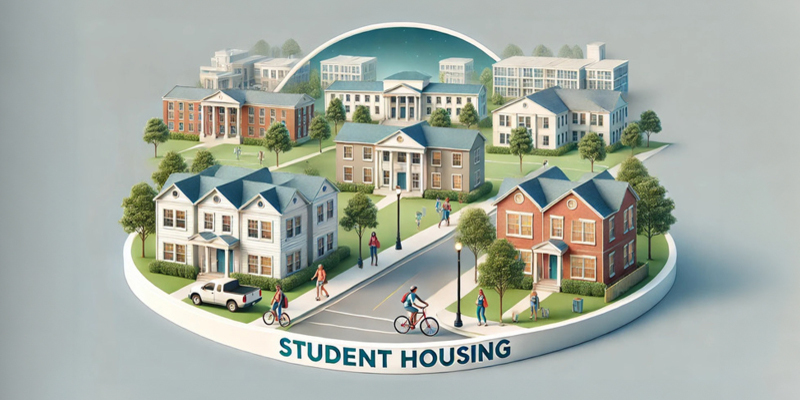When considering various real estate investment opportunities, one question that often arises is whether student housing is a good investment. The short answer is that it can be, but our management company doesn’t recommend it for most property owners. Here’s why:
High Turnover and Property Wear
Student housing typically experiences a high turnover rate. Unlike traditional rental properties where tenants may stay for several years, student housing often involves nine-month leases to align with the academic calendar. This constant turnover means that landlords must frequently find new tenants, which can be time-consuming and costly.
Moreover, student housing tends to take a lot of abuse. The properties are subject to heavy use, which can result in more frequent repairs and maintenance. Unless you’re an experienced landlord with durable finishes like tile and faux wood flooring, managing the wear and tear can be challenging and expensive.
Frequent Maintenance and Turnover Costs
The high turnover rate in student housing leads to additional costs. Every time a tenant moves out, the property typically requires cleaning, repairs, and possibly renovations to get it ready for the next tenant. These costs can add up quickly and eat into your profits. If you’re not adept at managing quick turnovers and maintaining the property efficiently, student housing can become more of a burden than a profitable investment.
The Need for a Specialized Business Model
Student housing investments require a specific business model that is well thought out and scalable. It’s not just about owning a property near a university; it’s about having the systems and processes in place to handle the unique demands of student tenants. This includes marketing to students, managing short-term leases, and maintaining properties that can withstand high usage.
Best Investment for Long-Term Property Owners
For most property owners, the best investments are those with long-term tenants who stay in the property for several years. These tenants provide stable rental income and typically take better care of the property, reducing the need for frequent repairs and turnovers. Student housing, with its high turnover and maintenance demands, doesn’t align well with this investment strategy.
